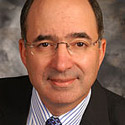03:20 PM
The Quant Mystique
What is the mystique around quants? Why are they so secretive? And why are firms such as Goldman Sachs, Societe Generale and Citadel making such public spectacles out of Aleynikov, Agrawal and Pu, the one convicted and two alleged code pilferers? It's not as if human traders are the most secretive lot. Give a trader a beer and you can find out just about anything; but give a trader a keyboard, and watch out. All of a sudden banks are more worried about espionage than the CIA.
Typically, banks want to portray themselves as secure and trustworthy institutions, and while they don't like being burgled, what they like less is media attention on being burgled. It destroys brand confidence. So why is the mystique of software code more important than the surety of security?
Trading security has become such a critical issue in today's market because the best human traders, while quantitative, have an instinctual edge; computer-driven trading is simply computer code. In the current market it is difficult for even the best human traders to express their trading techniques without algorithms, which can be as portable and as scalable as the market's liquidity.
Meanwhile, firms are becoming more reliant on code than on human traders. In an age when message latencies are measured in microseconds, human traders have become almost irrelevant. While the human trader can more easily manage the macro picture, at the micro level it is all about speed and infrastructure.
Beyond their relative performance, technology also is easier to protect than human resources. (I am not sure that anyone has been able to patent a human trader.) While firms use non-competes and employment agreements to limit trader portability, these clauses expire -- stopping someone from switching firms for six months isn't much of a deterrent.
Quant secrecy also is about supply and demand. The number of quant developers has been far more limited than human traders. When trading was first automated, the number of traders who understood computers was just about the same as the number of computer scientists who understood financial markets -- virtually zero. Today, the number of human traders is on the decline, as the number of quant programmers is on the rise. As quant programmers increasingly are in demand, so too will be their labors -- source code. Eventually, as more quants are created, these barriers should decline.
Building out a quant platform increasingly takes many specialists. From hardware to software; from messaging to market data; from storage to speed, firms will need many experts to analyze, normalize and create a quant infrastructure. There will not be any one master who can develop, integrate and implement all aspects of this infrastructure. There are too many moving parts, too much complexity and too much investment necessary for a firm's core infrastructure to be pilfered or replicated without significant time and investment.
Behind the Curtain
While secrecy may have kept quant trading strategies quiet, the quant mystique may not have been the best for these firms' public personas. The secretive nature of quant firms has put them on the radar of a panoply of global regulators and legislators. This concern is prompting a new wave of regulatory actions and discussions. The SEC has issued Market Access rules to thwart naked access, and both the SEC and FINRA are auditing various firms' trading models. We also are seeing a number of HFT-related rules discussed, ranging from a consolidated audit trail and requiring orders to be in the market for longer than a flash, to transaction taxes, cancelation fees and market-maker incentives.
While the mystique of the quant likely will continue, the transparency around the business of automated trading must not. At the end of the day, markets only thrive if they are perceived to be fair and honest. Until regulators, investors and market participants have a greater understanding of how orders are being handled and filled and liquidity provisioned, this burdensome regulatory scrutiny unfortunately will not subside. At the end of the day, the more secretive quant firms are, the more scrutiny they will receive. While this may be good for the quants themselves, I am not sure it's good for the markets or investors.
Larry Tabb is the founder and CEO of TABB Group, the financial markets' research and strategic advisory firm focused exclusively on capital markets. Founded in 2003 and based on the interview-based research methodology of "first-person knowledge" he developed, TABB Group ... View Full Bio



























